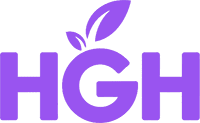HGH for Fitness & Bodybuilding
Understand how human growth hormone impacts muscle growth, recovery, and athletic performance

HGH and Muscle Development
Human Growth Hormone (HGH) has gained significant attention in fitness and bodybuilding communities due to its potential effects on muscle tissue. Naturally produced by the pituitary gland, HGH stimulates growth, cell reproduction, and regeneration in humans.
In the context of fitness, HGH is believed to contribute to several key processes:
- Increased protein synthesis - Essential for building new muscle tissue
- Enhanced amino acid uptake - Improves the body's ability to use protein efficiently
- Promotion of lipolysis - The breakdown of lipids, which can help reduce body fat
- Increased collagen synthesis - Supports joint and tendon health
The Scientific Research


Multiple studies have examined the effects of HGH on muscle growth and athletic performance. A meta-analysis published in the Annals of Internal Medicine found that HGH increased lean body mass but did not significantly improve strength or exercise capacity in healthy individuals.
However, research also indicates that HGH may have more pronounced effects when:
- Combined with resistance training programs
- Used by individuals with clinically low HGH levels
- Administered during periods of caloric deficit to preserve muscle mass
Research Highlight:
A 2010 study published in The Journal of Clinical Endocrinology & Metabolism found that HGH supplementation in healthy older men led to an average increase of 2.1 kg in lean body mass and a decrease of 1.8 kg in fat mass over a 26-week period.
Recovery and Injury Prevention

One of the most significant potential benefits of optimal HGH levels for athletes is enhanced recovery. Growth hormone plays a crucial role in tissue repair processes, which can be particularly beneficial after intense training sessions or injuries.
How HGH Supports Recovery:
- Accelerated tissue repair - HGH stimulates collagen synthesis necessary for repairing damaged tissues
- Reduced inflammation - Can help moderate the inflammatory response after intense exercise
- Improved sleep quality - HGH secretion peaks during deep sleep, which is essential for recovery
- Enhanced bone mineralization - May help strengthen bones and prevent stress fractures
Elite athletes often focus on optimizing natural HGH production through proper nutrition, sleep, and training protocols to maximize these recovery benefits without resorting to synthetic hormone use.
Performance Enhancement Considerations
Strength Gains
Research suggests minimal direct impact on maximal strength, despite increases in lean mass.
Endurance
May enhance aerobic capacity through improved cardiac output and oxygen utilization.
Body Composition
Consistently shown to reduce body fat and increase lean muscle tissue in various populations.
The performance-enhancing effects of HGH remain somewhat controversial in scientific literature. While some studies show modest improvements in certain aspects of performance, others find minimal ergogenic benefits relative to potential side effects.

It's important to note that synthetic HGH is banned by most sporting organizations, including the World Anti-Doping Agency (WADA) and major professional sports leagues. Athletes caught using HGH can face severe penalties, including suspension and loss of achievements.
Natural Ways to Optimize HGH Levels

For athletes and fitness enthusiasts looking to support their natural HGH production, several evidence-based strategies can be effective:
- High-intensity interval training (HIIT) - Studies show that sprint-type exercises can trigger significant acute increases in HGH secretion
- Intermittent fasting or protein-sparing modified fasts - Can increase HGH production by up to 2000% according to some research
- Optimizing sleep - 7-9 hours of quality sleep, as most HGH is released during deep sleep cycles
- Reducing sugar intake - High insulin levels can suppress HGH release
- Post-workout nutrition timing - Strategic protein and carbohydrate intake to support recovery and hormone production
Expert Tip: Workout Timing
"Training in a fasted state in the morning or several hours after your last meal may help maximize the natural HGH response to exercise. This approach combines the hormonal benefits of both fasting and high-intensity training."
― Dr. Michael Eades, Sports Medicine Specialist
Expert Tip: Recovery Focus
"Many athletes focus too much on training volume and not enough on recovery. Prioritizing sleep quality, stress management, and proper nutrition may do more for your hormone levels—and ultimately your results—than adding more training sessions."
― Sarah Wilson, PhD, Exercise Physiologist
Supplements and HGH Production
Several supplements are marketed with claims of enhancing natural HGH production. The scientific evidence supporting these claims varies significantly:
| Supplement | Evidence Level | Potential Mechanism |
|---|---|---|
| Arginine & Ornithine | Moderate | May enhance HGH release when taken in specific doses (5-9g) |
| GABA | Limited | Might increase HGH levels during rest and post-exercise |
| Melatonin | Moderate | Improves sleep quality, which enhances natural HGH production |
| Creatine | Limited | May indirectly support HGH through increased training intensity |
| L-glutamine | Limited | Some studies show modest HGH increases with supplementation |
For more detailed information about supplements that may support HGH production, visit our HGH Supplements page.
Important Safety Considerations
While optimizing natural HGH levels can be beneficial for fitness and performance, synthetic HGH:
- Is a controlled substance in most countries and illegal without a prescription
- Is prohibited by WADA and most sports governing bodies
- Can cause serious side effects including joint pain, carpal tunnel syndrome, and increased risk of diabetes
- May lead to long-term health complications when used without medical supervision
Athletes and fitness enthusiasts should always prioritize legal and safe approaches to enhancing performance and physique. For more information about potential risks, please visit our Side Effects page.
Related Resources
Disclaimer:
This information is provided for educational purposes only and is not medical advice. Always consult with a qualified healthcare professional before starting any new training program, supplement regimen, or hormone therapy.
